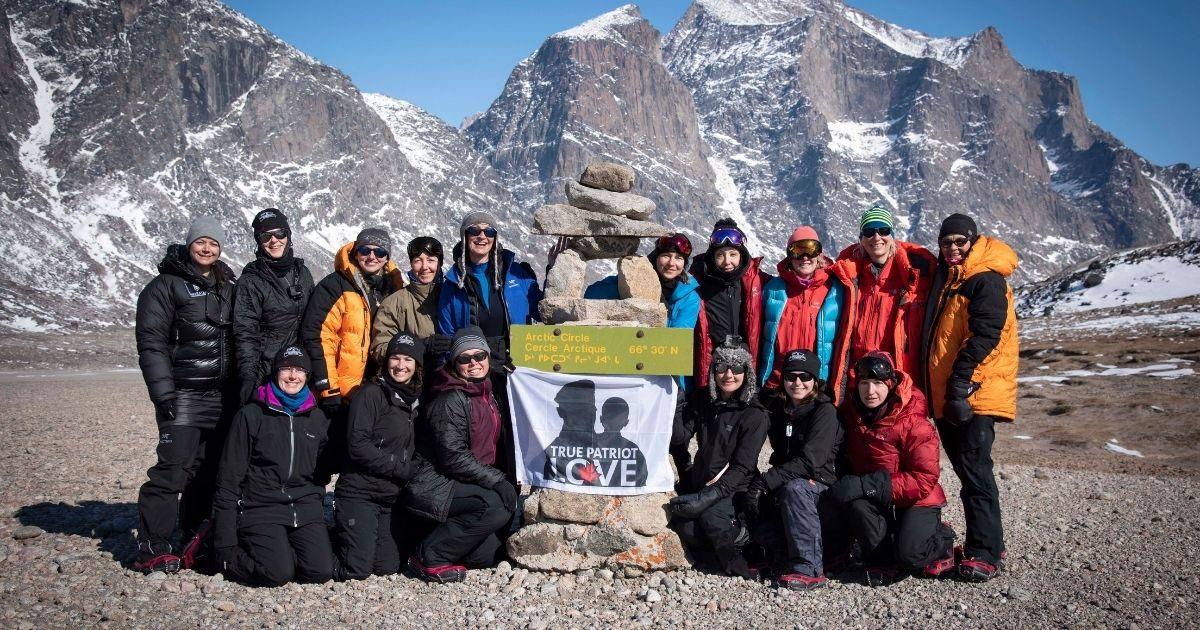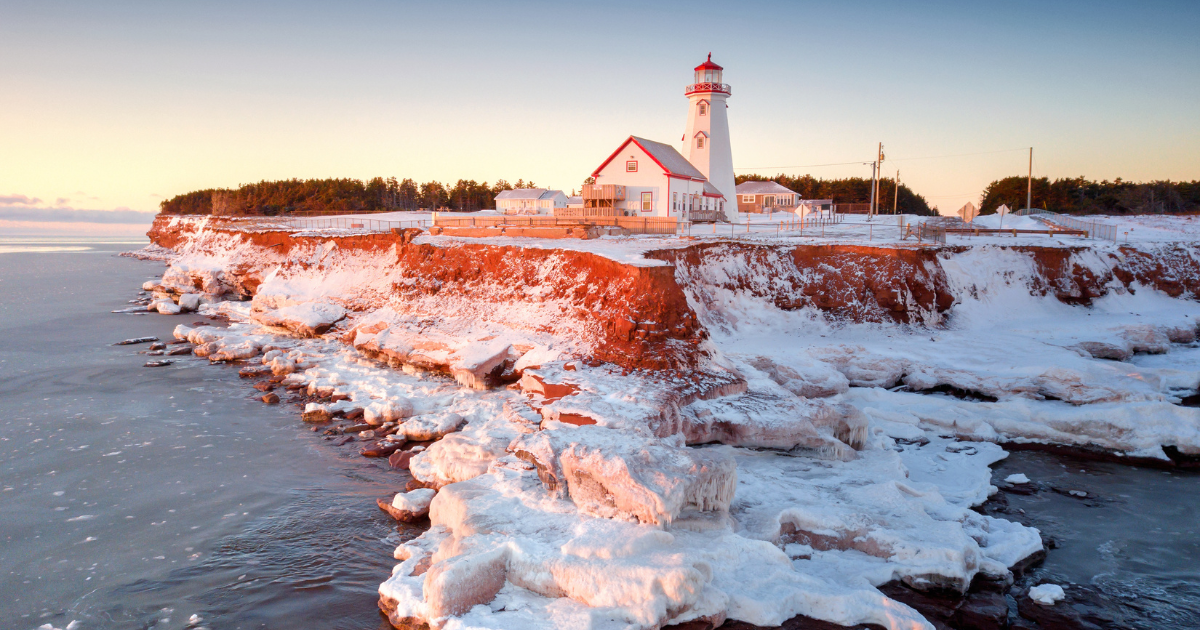There are brave heroes across the world who serve and protect our country in many forms and levels. However, when our military community and their families need support and protection, who is there to lift them up?
Based in Fort Saskatchewan, Alberta, Natalie Forcier, a retired master corporal, faced challenges with her mental well-being after her medical release from the Canadian Army. Growing up in the small northern community of St. Isidore-de-Bellevue, Saskatchewan, she was intrigued at an early age by the possibility of serving her country. By age 18, she had joined the military as a medical technician and went on to serve for 14 years. In 2008, she was deployed to Afghanistan, where she worked for over half a year. She returned to Afghanistan in 2010 for an additional 8 months.

“We would go to different villages or meet with village elders, to help begin, continue or finalize projects,” Forcier shares. “We helped build schools and dorm rooms for females in nursing programs because there weren’t any prior to that.”
A knee injury that resulted in a post-op infection and multiple surgeries led her to be medically released in 2016 and awarded the vocational rehab program, during which she was allowed to start in school, which was paid for, while her salary was topped up. After that, she went back to her hometown in Saskatchewan to start a small mobile massage clinic. “For me, that was the moment where the transition hit me, because I had been so accustomed to having a title, a position, a scope of practice,” she recalls. “Everything was very clearly defined and there was a clear hierarchy and a direction on how to do the job.”

That’s when Forcier began to feel a decline in her mental health. “It was a form of identity crisis,” she says, explaining how she wanted to pursue a career that highlighted her military and medical background but didn’t have any exposure to other veterans in her small rural community.
Then she heard about True Patriot Love, a Canadian foundation that supports the military community. Since its inception in 2009, True Patriot Love has helped change the lives of more than 30,000 military members, veterans and families. It raises awareness around the challenges related to military service, and also funds programs that support the well-being of Canada’s heroes, enabling rehabilitation and recovery from injury, assisting children and spouses of those who serve, and promoting reintegration into communities following service.

Since 2012, True Patriot Love has produced ambitious fundraising expeditions around the world, engaging Canadian Armed Forces members, veterans and civilians. Past expeditions have collectively raised over $9 million for the military community, provided meaningful mentorship opportunities, and helped shed light on the stigma of mental illness. Through the program, participating business leaders get to know military participants, offering one-on-one support as they transition to civilian careers.
Forcier had heard about these expeditions through social media and friends and applied for the True Patriot Love Women’s Expedition to Baffin Island in April 2019 TK. “I didn’t know what I was getting into, just that it meant helping other veterans,” Forcier says. “When it came through that I was accepted and I’d be going on the expedition, I was kind of like, ‘Oh my God, I’m not much of a fan of the cold!’” she says.

Before she knew it, Forcier was travelling to Gravenhurst, Ontario, to meet the rest of the team, made up of six military women and 12 businesswomen and community leaders from across Canada.
“I remember feeling so alone, and I felt incapable of carrying a conversation with these successful women,” Forcier recalls. “I didn’t feel worthy of how highly they spoke of my experience in the military. But on our first evening, we just sat around a fire, talking and explaining our ‘why.’ And I realized how these beautiful, powerful, intimidating women were just so honoured to be able to do this for our veterans.”
Together, the team embarked on a 10-day trek, snowshoeing across the Arctic Circle and traversing the Akshayuk Pass in Nunavut, with no cell service or connection to the outside world. By the second day, Forcier says, the women had bonded. “The connections just started happening and people started having conversations. Nobody stopped, nobody faltered; everyone was there for each other. I created bonds with women I never expected to ever cross paths with,” she shares.

Working as a team to complete the mission, the women faced physical, emotional and mental roadblocks throughout their journey. “It was similar to my experience in the field, only I was surrounded by women. And it smelled good,” Forcier says with a laugh.
All kidding aside, the trek was gruelling, she admits. “It was freezing,” she says, noting that temperatures could drop to –35°C after the sun went down. “We had to ride in heats on the back of a Ski-Doo, and you’re not moving for 2, 3 hours and you smell like fuel. Our first day, it was snowing. It was hard to see ahead of you. We walked with snowshoes for days at a time, and later ice picks, because the terrain changed so drastically. I think at the beginning, we were all settling into what we signed up for, like, ‘OK, this is going to be tough.’ By the end, though, everybody was hugging and crying. During the expedition, a lot of us were thinking, ‘I don’t know if I can do this.’ Every expedition takes a doctor with them, and she had to tell everyone they will get through this. It was an experience I wouldn’t trade for the world.”
At the end of the expedition, the women held a round table where they discussed what they gained out of the experience. Libby McCready from Mackenzie Investments talked about her story and made a comment that really hit home with Forcier and still affects her to this day.

“She said, ‘Moving forward, I’m not going to minimize the great things I’ve done.’ And I was like, wow, I am so on board with that,” says Forcier. “I realized that I spent a lot of my career minimizing things that happened to me. It was kind of a protective mechanism, helping me get through my day, but I realized that it wasn’t serving me.”
“Julie Cowan was one of my business mentors,” Forcier says. “She was always asking questions and I was the only veteran or military person in my tent. So, I was like, I don’t understand why you’d even be interested in this, but I would tell my stories and she and the other women would be like, ‘Oh, wow.’ I had never seen what I’ve done as anything special and I struggled with that.”

Thanks to her experience in the expedition, Forcier gained the courage to launch her business and help other veterans in need. “The whole thing really helped me, confidence-wise; it gave me the ability to believe in myself,” she says. “I’m now in the process of purchasing a clinic in the Edmonton area that will implement services directed at veterans. The platform is designed to connect social services with medical services so that practitioners can refer back and forth and have a better understanding of their clients. It would include hiring retired military medical professionals who can easily identify with the patient, as well as the patient identifying with the service provider.”
By raising money to support veterans and bringing military personnel and business leaders together, True Patriot Love has created a lasting impression on its participants, which continues on in friendships forged. “I still communicate with the group and True Patriot Love,” says Forcier. “Julie and the team have helped me with areas of my business I’m not comfortable with, things like marketing. They’ve all been super supportive.”
Thanks to its fundraising efforts and expeditions, True Patriot Love gives our country’s heroes the opportunity to continue serving in so many beautiful ways. People like Forcier, who shares, “What makes me happy is helping people.” Helping people help others—now, that’s a cause worth sharing.

//Photo credits//
Shilo Adamson
The credit can be given to Shilo Adamson, who was the photographer on the trek. I’ve cc’d Shilo on this email. @Shilo Adamson: Catalina will be using some of the Baffin expedition photos in her magazine article (link to the photos is here, FYI). Would you like to include your rank in the credit as well?
An editor with 15-plus years in the publishing business, Catalina Margulis’ byline spans travel, food, decor, parenting, fashion, beauty, health and business. When she’s not chasing after her three young children, she can be found painting her home, taming her garden and baking muffins.













